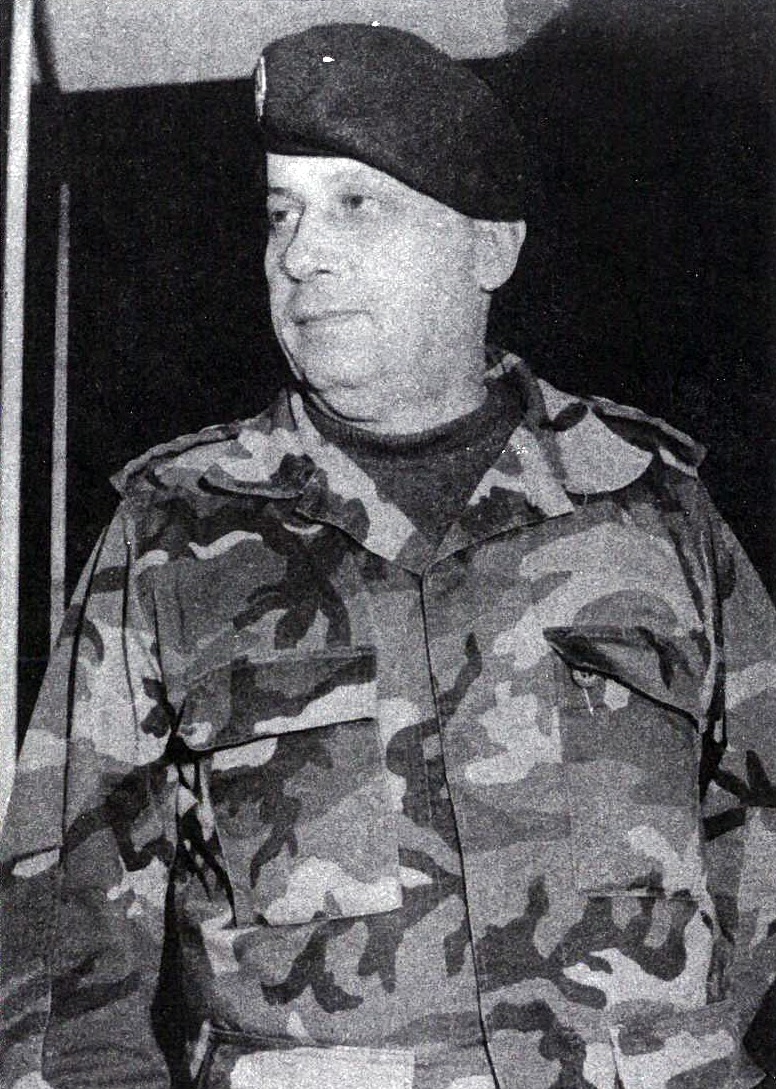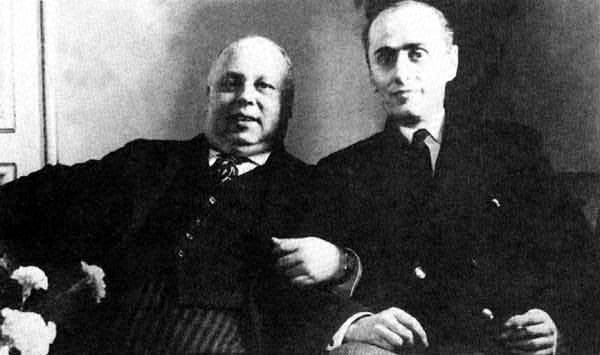|
2022 Lebanese Presidential Election
The 2022 Lebanese presidential election is an ongoing indirect election to elect the president of Lebanon following the expiration of term-limited incumbent Michel Aoun's mandate on 31 October 2022. The outgoing president has served since 31 October 2016, following the end of the 2-year presidential crisis. By convention, the presidency is always held by a Maronite Christian. Under article 49 of the Lebanese Constitution, a qualified majority of two-thirds of the members of the Lebanese Parliament is required to elect the president in the first round. If no candidate reaches that threshold, further rounds of election are held where an absolute majority of the members legally constituting the parliament is sufficient to elect the president. The incumbent president is not eligible for reelection until six years has passed since the expiration of his mandate, as per article 49 of the Lebanese Constitution. Background 2019–21 protests Large-scale anti-government demonstra ... [...More Info...] [...Related Items...] OR: [Wikipedia] [Google] [Baidu] |
Michel Aoun
Michel Naim Aoun ( ar, ميشال نعيم عون ; born 30 September 1933) is a Lebanese politician and former military general who served as the President of Lebanon from 31 October 2016 until 30 October 2022. Born in Haret Hreik to a Maronite Christian family, Aoun joined the Military Academy in 1955 and graduated as an artillery officer in the Lebanese Army. In 1984, he became the youngest Commander of the Army, at the age of 49 years. On 22 September 1988 during the fourth phase of the Lebanese Civil War, the departing President Amine Gemayel appointed him as the interim Prime Minister of a Military Government, after the parliament failed to elect a new president, and dismissed the current government headed by the Acting Prime Minister Selim Hoss. This controversial decision saw the rise of two rival governments contending for power at that time, with Aoun being supported mainly by Christians and Iraq, while the other being supported by Muslims and Syria. He declared ... [...More Info...] [...Related Items...] OR: [Wikipedia] [Google] [Baidu] |
Nabih Berri
Nabih Berri ( ar, نبيه مصطفى بري, translit=Nabīh Muṣṭafā Barriyy, links=hh; born 28 January 1938) is a Lebanese Shia politician who has been serving as Speaker of the Parliament of Lebanon since 1992. He heads the Amal Movement. Early life and education He was born in Bo, Sierra Leone to Lebanese people, Lebanese Shia parents on 28 January 1938. His father, Mustafa Berri, was a trader there. Berri went to school in Tebnine and Ain Ebel in southern Lebanon, then continued his education in Bint Jbeil and Jaafariya supplementary schools in southern Lebanon and later studied at the Makassed and the Ecole de la Sagesse in Beirut. He graduated with a law degree from the Lebanese University in 1963, where he had served as the student body president, and became a lawyer at the Court of Appeals. Early career During 1963, Berri was elected as president of the National Union of Lebanese Students, and participated to student and political conferences. During his earl ... [...More Info...] [...Related Items...] OR: [Wikipedia] [Google] [Baidu] |
Ziad Alexandre Hayek
Ziad-Alexandre Hayek ( Arabic: زياد حايك; born on 27 January 1959) was Secretary General of the Republic of Lebanon's High Council for Privatization and PPP from 2006 until he was nominated to be President of the World Bank in February 2019. The Lebanese Government withdrew Hayek's nomination in March 2019. The Lebanese press reported that Prime Minister Saad Hariri informed the Council of Ministers that the decision to withdraw the nomination was taken due to foreign pressure. Hayek is currently Head of the International Center of Excellence in PPP for Ports, President of the World Association of PPP Units & Professionals, Member of the Board of Trustees of the Holy Spirit University of Kaslik, Member of the Investment Committee of World YMCA, and High Commissioner for Lebanon at the World Business Angels Investment Forum. A citizen of the US, the UK and Lebanon, Hayek speaks 11 languages. He is fluent in Arabic Arabic, English, French, Spanish, Portuguese and f ... [...More Info...] [...Related Items...] OR: [Wikipedia] [Google] [Baidu] |
2009 Lebanese General Election
Parliamentary elections were held in Lebanon on 7 June 2009 to elect all 128 members of the Parliament of Lebanon. Background Before the election, the voting age was to be lowered from 21 to 18 years, but as this requires a constitutional amendment, it did not happen before the election. Allocation of seats Following a compromise reached in the Doha Agreement in May 2008 between the government and opposition, a new electoral law was put in place, as shown in the table below. It was passed on 29 September 2008. Results Preliminary results indicated that the turnout had been as high as 55%. The March 14 Alliance garnered 71 seats in the 128-member parliament, while the March 8 Alliance won 57 seats. This result is virtually the same as the result from the election in 2005. However, the March 14 alliance saw this as a moral victory over Hezbollah, who led the March 8 Alliance, and the balance of power was expected to shift in its favor. Many observers expect to see ... [...More Info...] [...Related Items...] OR: [Wikipedia] [Google] [Baidu] |
Lebanese Shia Muslims
Lebanese Shia Muslims ( ar, المسلمون الشيعة اللبنانيين), historically known as ''matāwila'' ( ar, متاولة, plural of ''mutawālin'' ebanese pronounced as ''metouali'' refers to Lebanese people who are adherents of the Shia branch of Islam in Lebanon, which plays a major role along Lebanon's main Sunni, Maronite and Druze sects. Shia Islam in Lebanon has a history of more than a millennium. According to the ''CIA World Factbook'', Shia Muslims constituted an estimated 28% of Lebanon's population in 2018. Most of its adherents live in the northern and western area of the Beqaa Valley, Southern Lebanon and Beirut. The great majority of Shia Muslims in Lebanon are Twelvers. However, a small minority of them are Alawites and Ismaili. Under the terms of an unwritten agreement known as the National Pact between the various political and religious leaders of Lebanon, Shias are the only sect eligible for the post of Speaker of Parliament. History O ... [...More Info...] [...Related Items...] OR: [Wikipedia] [Google] [Baidu] |
President Of Lebanon
The President of the Lebanese Republic ( ar, رئيس الجمهورية اللبنانية, rayiys aljumhuriat allubnania; french: Président de la République Libanaise) is the head of state of Lebanon. The president is elected by the parliament for a term of six years, which cannot be renewed immediately because they can only be renewed non-consecutively. By convention, the president is always a Maronite Christian who fulfills the same requirements as a candidate for the house of representatives, as per article 49 of the Lebanese constitution. History From the expiration of the term of President Michel Suleiman in May 2014 until October 31, 2016, the parliament was unable to obtain the majority required to elect a president, and the office was vacant for almost two and a half years, despite more than 30 votes being held. On October 31, 2016, the parliament finally elected Michel Aoun as president. Office Qualifications The constitution requires the president hold the same ... [...More Info...] [...Related Items...] OR: [Wikipedia] [Google] [Baidu] |
Lebanese Independence Day
Lebanese Independence Day ( ar, عيد الإستقلال اللبناني, translit=Eid Al-Istiqlal, lit=Festival of the Independence; french: Indépendance du Liban) is the national day of Lebanon, celebrated on 22 November in commemoration of the end of the French Control over Lebanon in 1943, after 23 years of Mandate rule. Pre-Independence period While the Lebanese have been in a constant struggle for independence from foreign powers since the age of the Old Testament, the modern struggle for Lebanese independence can be traced back to the emergence of Fakhr-al-Din II in the late 16th century, a Druze chief who became the first local leader in a thousand years to bring the major sects of Mount Lebanon into sustained mutual interaction. Fakhr-al-Din also brought western Europe back to Mount Lebanon. The French traveler Laurent d'Arvieux observed massive French commercial buildings in Sidon, Fakhr-al-Din's political centre, where bustling crowds of Islam in Lebanon, Muslims, ... [...More Info...] [...Related Items...] OR: [Wikipedia] [Google] [Baidu] |
Lebanon
Lebanon ( , ar, لُبْنَان, translit=lubnān, ), officially the Republic of Lebanon () or the Lebanese Republic, is a country in Western Asia. It is located between Syria to the north and east and Israel to the south, while Cyprus lies to its west across the Mediterranean Sea; its location at the crossroads of the Mediterranean Basin and the Arabian hinterland has contributed to its rich history and shaped a cultural identity of religious diversity. It is part of the Levant region of the Middle East. Lebanon is home to roughly six million people and covers an area of , making it the second smallest country in continental Asia. The official language of the state is Arabic, while French is also formally recognized; the Lebanese dialect of Arabic is used alongside Modern Standard Arabic throughout the country. The earliest evidence of civilization in Lebanon dates back over 7000 years, predating recorded history. Modern-day Lebanon was home to the Phoenicians, a m ... [...More Info...] [...Related Items...] OR: [Wikipedia] [Google] [Baidu] |
Riad Al Solh
Riad Reda Al Solh ( ar, رياض الصلح; 17 August 1894 – 17 July 1951) was the first prime minister of Lebanon after the country's independence.Pdf. Solh was one of the most important figures in Lebanon's struggle for independence, who was able to unite the various religious groups. He is considered one of the founders of Lebanon. Early life Riad Al Solh, also written Riad el Solh or Riad Solh, was born in , south Lebanon, on 17 August 1894. His father, , was Vice-governor in[...More Info...] [...Related Items...] OR: [Wikipedia] [Google] [Baidu] |
Bechara El Khoury
Bechara El Khoury ( ar, بشارة خليل الخوري; 10 August 1890 – 11 January 1964) was a Lebanese politician who served as the 1st president of Lebanon, holding office from 21 September 1943 to 18 September 1952, apart from an 11-day interruption (11–22 November) in 1943. He had previously served two short terms as Prime Minister, from 5 May 1927 to 10 August 1928, and 9 May to 11 October 1929. Early life and education Khoury was born in Rechmaya, to Lebanese Maronite Christian parents in a town in the Aley district, Mount Lebanon governorate on 10 August 1890. He studied law. Political career Khoury founded the Constitutional Bloc Party and served as a cabinet minister prior to his election as president on 21 September 1943. He was a strong nationalist who opposed the French Mandate, and on 11 November 1943, he was arrested by Free French troops and imprisoned in the Rashaya Tower for eleven days, along with Riad Al Solh (Prime Minister), Camille Chamoun, and num ... [...More Info...] [...Related Items...] OR: [Wikipedia] [Google] [Baidu] |



.jpg)


